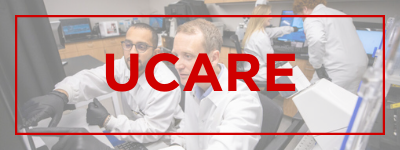UCARE: Undergraduate Creative Activities and Research Experiences

UCARE: Research Products
Date of this Version
2018
Document Type
Poster
Citation
UCARE Research Fair Poster, Spring 2018, University of Nebraska-Lincoln.
Abstract
This study examines the effects of small molecule lipid activating chemical compound, discovered from the high throughput screening (HTS) (2) methods of previous FATTT Lab studies on the growth and production of lipids and metabolites in microalgae. For this study, the effects of two lipid inducing chemical compounds from the HTS method were implemented with the microalgae strain Chlamydomonas reinhardtii CC-125. This experiment focused on scaling up to large amounts of culture, approximately 1L. These cultures were grown in specially designed large bioreactors that were able to accommodate for such large volume of algal culture. Algal cells were treated with 10 μM concentration of the chemical compounds at initial time of inoculation. A control set was also implemented to be compared against the treatment conditions. Daily samples of algae cultures were taken in order to analyze growth on a time course-based method in addition. After five days, algae cultures were harvested completely, spun down into pellet form to be freeze dried vacuum by lyophilizer machine. The dried biomass was then recorded and used to carry out analytical techniques to quantify total lipids and metabolites of the algal cells.
PowerPoint version


Comments
Copyright (c) 2018 David Nguyen, NishikantWase, and Concetta C. DiRusso